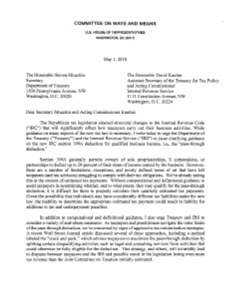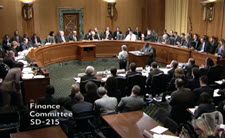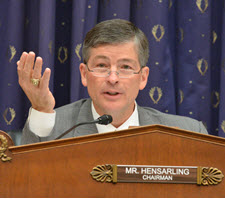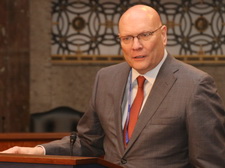The Real Estate Roundtable has released its FY2018 Annual Report “Building Success,” which reports on the organization’s policy activities from July 1, 2017 to June 30, 2018 and outlines its policy priorities for the coming year.
- “We are extremely proud of our success this past year and equally eager to build on its foundation as we move into our new fiscal year. As always, we will continue to inform lawmakers with consistent and credible policy analysis that encourages economic growth, job creation, and a healthy national real estate market,” said Roundtable President and CEO Jeffrey D. DeBoer.
- Immediate Past Roundtable Chair (2015-2018) William C. Rudin (Co-Chairman and CEO, Rudin Management Company, Inc.) noted the continued efforts of promoting greater diversity throughout the organization and his efforts during his tenure as Chair. “We have made measurable progress at identifying and recruiting more highly qualified women and people of color to join, and participate at The Roundtable. With greater membership diversity, we ensure that our decisions are better informed and more sustainable.”
The Report includes summaries showing continued progress on the policy front, including:
- In late 2017, the most comprehensive tax reform in over 30 years, the Tax Cuts and Jobs Act, was signed into law. Due in large part to the Roundtable’s advocacy efforts, TCJA preserved interest deductibility; retained like-kind exchanges for real estate; and maintained depreciation and cost recovery rules. The Roundtable and its Tax Policy Advisory Committee is continuing its efforts with Treasury and the Administration to ensure appropriate implementation of the comprehensive law.
- Congress passed financial deregulation legislation – Economic Growth, Regulatory Relief, and Consumer Protection Act (S.2155) – that included important reforms to the Basel III High Volatility Commercial Real Estate (HVCRE), which promote sustainable development and lending, and lowers financial barriers for job-creating projects.
- The Federal Reserve and four other federal agencies approved a proposal to simplify and ease the Volcker Rule. The proposal, known as Volcker 2.0, seeks to simplify regulatory requirements by giving banks new quantitative “bright-line rules” to provide more clarity on what activities are prohibited and permitted.
- As a long-time supporter of the ENERGY STAR Program, The Roundtable was a key player in the creation and ongoing development of the EPA’s new charter tenant program “ENERGY STAR for Tenants” labeling platform of high-performance leased office spaces.
- Anticipating infrastructure as a policy issue for possible compromise after the upcoming midterm elections, The Roundtable offered comments to the Administration and Congressional committees on real estate’s role in creating public-private partnerships to help repair the roads, transit, broadband, power grid and other systems needed to make our communities safe, productive and competitive.
Newly elected Roundtable Chair Debra A. Cafaro (Chairman and Chief Executive Officer, Ventas, Inc.) emphasized that The Roundtable’s policy agenda remains full of key issues that require our engagement as a non-partisan industry voice. “Above all, we must uphold our independent and respected position on Capitol Hill, emphasizing our optimism about the economy and the positive contributions the real estate industry provides as a job creator and as a cornerstone for retirement savings. We are committed to proactively advancing policies that promote a healthy balance of capital and people flows to create sustainable economic growth that is good for our members, our industry and our national economy,” said Cafaro.
The publication includes a listing of all Roundtable members, as well as the FY2019 Board of Directors and Committee Leadership, and has been mailed to all Roundtable members, congressional offices on Capitol Hill, and is available online.













